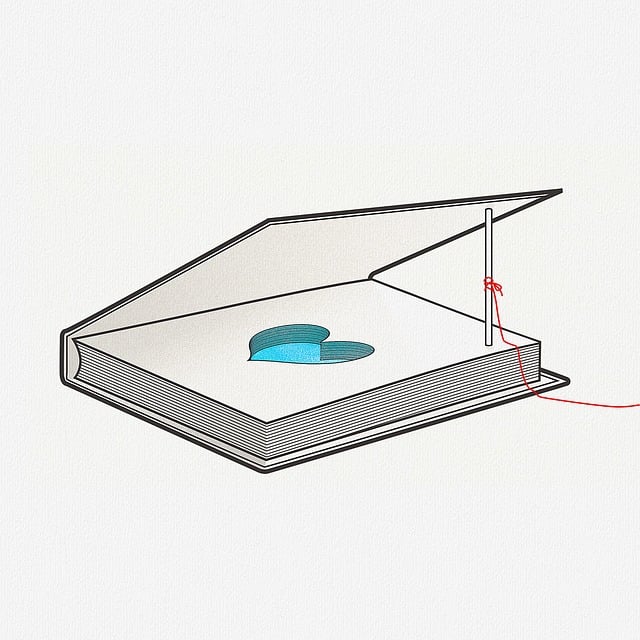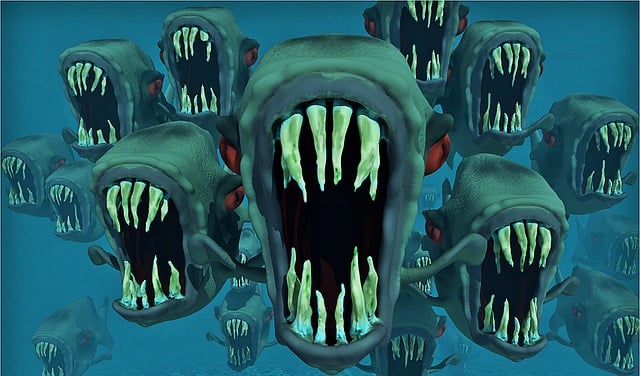Unraveling the Wisdom Teeth Mystery: Can They Alter Your Jaw Alignment?
Welcome to our article on unraveling the mystery surrounding wisdom???? teeth and their potential impact on jaw alignment! If you’ve ever wondered why these third molars seem determined to make an appearance, ????or if they have any effect on the alignment of your ????smile, you’ve come to the right place. ????We’ll delve into the fascinating world ????of wisdom teeth, discussing what they are, why they can cause problems, and whether ????they can truly alter the alignment of your jaw. Get ready to embark on a journey of dental exploration, as we shed light on the enigmatic wisdom teeth and provide you with valuable insights to help you make an informed decision when facing the possibility of their extraction. So, let’s get started!
1. Understanding the Enigma: ????The Wisdom Teeth Mystery Unveiled
Wisdom teeth,???? also known as third molars, often spark curiosity and intrigue due to their mysterious nature. These late-blooming teeth, which typically???? appear between the ages of 17 and 25, have presented questions for scientists and dental professionals for decades. In this section, we will delve into the enigma surrounding wisdom teeth and uncover some fascinating insights.
????
1. Why do we have wisdom teeth?
-
????
- Evolutionary remnants: Some experts believe???? that wisdom teeth are remnants from our ancestors who???? required the extra molars to chew a ????rougher diet.
- Room for growth: Wisdom teeth emerge to fill the space at the back of the mouth left???? by???? other teeth. However, due to changes in our diet and jaw structure over time, many individuals no longer have ????the adequate space for these additional molars.
????
2. What problems can wisdom teeth cause?
-
????
- Crowding: When wisdom teeth attempt to erupt, they may cause overcrowding, leading to discomfort and misalignment of ????other teeth.
- Impaction: Wisdom teeth can ????become impacted and fail to fully emerge from the gums. This poses a risk of infection, cyst formation, and damage to???? nearby teeth.
- Tooth decay and gum???? disease: Due to their location at the back of the mouth, wisdom teeth are often difficult to clean properly, increasing the risk of tooth decay and gum disease.
????

2. What’s the Deal with Wisdom Teeth? Exploring their Purpose and Function
Wisdom teeth, also known as third molars, ????are the???? last???? set of molars to come in during adulthood, typically appearing between the ages of 17 and 25. While some individuals have no issues with their wisdom teeth, others may experience discomfort, pain, or complications due to their arrival.
So, what’s the purpose of these teeth anyway? While the exact function of ????wisdom teeth remains debated among experts, it is believed that???? they were once necessary for our distant ancestors. Here are some interesting facts about wisdom teeth:
- Potential chewing powerhouses: Wisdom teeth were beneficial for our ancestors who had a tougher diet consisting???? of roots, nuts, and leaves. These teeth provided additional chewing surface to help grind down???? these coarse foods.
- Unnecessary in modern times: Thanks to advancements in our diets and cooking techniques, our jaws have become smaller, leaving little to no space for wisdom teeth. This lack of space often???? results in these teeth being impacted or overcrowded, leading to a variety of dental ????problems.
- Primarily vestigial organs: Wisdom teeth are considered vestigial organs since they???? serve no essential purpose in the human body today.
3. Jaw Alignment Woes: Can Wisdom Teeth Alter Your Bite?
When it comes to jaw alignment, wisdom teeth can indeed cause some issues. These third molars usually emerge between the ages of 17 and 25, a time when the jaw structure is already established. As they grow in, wisdom teeth can push against the neighboring teeth, causing overcrowding, misalignment, and discomfort.
If you’re experiencing jaw alignment woes, there are several signs???? that wisdom teeth may be the culprit:
-
- Pain or discomfort: Wisdom teeth???? can put pressure on your existing ????teeth, ????leading to pain or tenderness in the jaw area.
- Swelling or inflammation:???? If the surrounding tissues become irritated, you may notice swelling or???? inflammation.
- Changes in bite: Wisdom teeth that don’t erupt properly can alter your bite, causing it to feel uneven or uncomfortable.
If you’re experiencing any of???? these issues, it’s important to consult ????with a dentist or oral surgeon. They can evaluate your situation and ????determine the best course of action. In some cases, wisdom teeth ????may need to be extracted to restore proper jaw alignment???? and alleviate discomfort. Remember, addressing ????these alignment woes early can prevent further complications down the road, leading to a healthier, more comfortable smile.
4. The Connection Between Wisdom Teeth and Jaw Misalignment: ????Delving into the Research
Research has shown a fascinating connection between wisdom teeth and jaw ????misalignment. Many people experience difficulty with the alignment of their jaws, which can lead to various issues such as pain, discomfort, and difficulty in chewing or speaking. It turns out that wisdom teeth, or the third molars at ????the back of our mouths, might be playing a ????significant role.
So, how exactly are wisdom teeth linked to jaw misalignment? Here are some key ????findings from recent studies:
- Impact on Jaw Size: Wisdom teeth can cause overcrowding in the mouth, which may result in the development of misaligned jaws. The eruption of ????these teeth???? can ????push the existing teeth forward, causing an imbalance in the jaw structure.
- Changes in Bite: Another important aspect revealed by the research is how wisdom teeth affect the way we bite. As these molars grow, they can disrupt the natural bite alignment, leading ????to problems???? like an overbite, underbite, or crossbite.
Understanding the connection between wisdom teeth and jaw misalignment is crucial for maintaining good oral health. If you’re experiencing any discomfort or ????suspect that your jaw alignment might be affected by wisdom teeth, it’s advisable to consult with a dental professional who can provide appropriate guidance and treatment.

5. Myth or Reality? Dispelling Common Misconceptions about Wisdom Teeth and Jaw Alignment
When it comes to wisdom teeth and jaw alignment, there are ????numerous misconceptions floating around. Let’s take a closer look ????at some of these common myths and separate fact from ????fiction.
Myth 1: Everyone needs their wisdom teeth removed.
- Reality: Not every individual requires wisdom teeth removal. ????While some people experience complications???? such as impaction, crowding, or infection, others may have ????properly aligned and functional wisdom teeth that don’t pose any issues.
- If you’re unsure about your wisdom teeth, it’s best to consult with a dental???? professional who can evaluate your specific situation and provide personalized advice.
Myth 2: Wisdom teeth extraction always leads to misalignment of the jaw.
-
????
- Reality: It is a popular???? belief that removing wisdom teeth???? can cause jaw misalignment, but this is???? not entirely accurate.
- While in rare cases, wisdom teeth removal???? may lead to temporary jaw stiffness or discomfort, proper surgical techniques and post-operative care greatly minimize any potential risks.
- If you have concerns about jaw alignment, speaking with an experienced dentist or orthodontist is recommended. They can ????assess your ????bite and provide appropriate guidance based on your specific dental needs.
By clarifying these misconceptions, we hope to???? provide you with a clearer understanding of wisdom teeth and jaw alignment. Remember, each person’s dental situation is unique, so it’s crucial to consult with trusted dental professionals to ????determine the???? best course of action for your oral health.
6. Why Do Wisdom Teeth Often Lead to Crooked Teeth and???? Misalignment?
Wisdom teeth, also known as third molars, are the last set of teeth to develop. They typically emerge between ????the ages of 17 and 25, long after the other permanent teeth have settled into place. Due to their late arrival and limited space in the jaw, wisdom teeth commonly lead to crooked teeth and misalignment. Here’s why:
???? 1. Lack of Space: Most ????people’s jaws aren’t large enough to accommodate the extra ????set of molars. As a result, when wisdom teeth begin to erupt, they may not have enough space to fully emerge and align properly. This lack of space causes them to grow in at odd angles or become impacted, pushing???? against the neighboring teeth and leading to ????misalignment.
2. Pressure on Adjacent Teeth: The pressure from wisdom teeth can cause the rest of the teeth to shift and become crowded. As wisdom teeth continue to exert pressure, they can push???? nearby ????teeth???? out of alignment, causing them to overlap or???? become crooked. ????This shift ????can also ????affect the spacing???? and alignment of the entire jaw, causing changes in the bite.
7. Uncovering the Science: How Wisdom Teeth Impact Jaw ????Growth and Development
Wisdom teeth, also known as third molars, are the last set of teeth ????to develop and usually emerge in the late teens or early twenties. These teeth???? were ????once essential for our ancestors, as their diet consisted of rougher, more fibrous foods that required additional chewing power. However, over time, ????advancements in cooking techniques and food processing have made ????these teeth less necessary for our modern diet.
Although wisdom teeth???? may seem like unnecessary baggage, they can have a ????significant???? impact on jaw growth and development. Here are a few key points to help you understand the science behind wisdom teeth:
- Variation in eruption: Wisdom teeth don’t always erupt properly or at all. Some people may experience partial eruption, where the tooth becomes trapped under the gum or bone, leading to pain and discomfort.
- Crowding and misalignment: When there isn’t enough room in the jaw for wisdom teeth to fully emerge, they can push against adjacent teeth. This can lead to crowding, shifting of teeth, and even ????bite problems.
- Impacted wisdom teeth: In some cases, wisdom teeth???? may remain completely trapped beneath the gum tissue or bone. This condition is known as impaction and can increase the risk of infection, cyst formation, and damage to nearby teeth.
As with any dental concern, it’s best to consult with a dentist or oral surgeon to assess your individual situation. They can ????provide personalized???? advice and determine ????whether wisdom teeth extraction is necessary to maintain optimal oral health and prevent potential problems down the road.
8. The Surprising Effects of Wisdom Teeth on Facial Structure: Shape-Shifting or Just Hype?
Wisdom teeth, also ????known as third molars, are the last set ????of teeth to develop in the back of the mouth. They typically emerge between the ages of 17 and 25. While some people experience no issues when their wisdom teeth???? come in, others may face various challenges. One notable ????consideration is the impact these teeth can have on facial structure.
Contrary to popular belief, wisdom teeth do not cause drastic shape-shifting of the face. However, they can occasionally contribute???? to minor changes in the???? facial structure, especially when impacted ????or when there is insufficient space for them to properly erupt. The following are some surprising ????effects that wisdom teeth can have on facial appearance:
-
- Crowding: When wisdom ????teeth lack enough room to grow normally, they may push against existing teeth, causing them to become misaligned or overcrowded. This can impact facial symmetry and make facial features appear unbalanced.
- Facial swelling: Wisdom teeth that are impacted or infected may lead to facial swelling. This swelling can temporarily alter the overall appearance of the face and make it appear rounder or puffy.
- Jaw pain: Wisdom teeth-related issues can cause discomfort and jaw pain. In some cases, this can result in the individual shifting their jaw position or adopting awkward facial expressions, leading to a temporary change in the facial structure.
????
It’s important to note that not everyone will experience these???? effects, as every individual’s anatomy and the development of wisdom teeth can vary. Consulting with a dental professional is crucial to understanding the impact ????of wisdom teeth on your specific facial structure. Remember, proper dental care and regular check-ups can help detect and address any potential issues with wisdom teeth ????early on.
9. Braces vs. Wisdom Teeth Extraction: Which Alteration ????Strategy is Right for You?
When it comes to improving your smile and oral health, two common alteration strategies that people often consider are ????braces ????and wisdom teeth extraction. Both of these methods can have a???? significant impact on your dental well-being, ????but which one is???? the right choice for you? Let’s???? take a closer look at???? braces and wisdom teeth extraction to help you make an informed decision.
Braces:
- Braces are orthodontic devices that are used to straighten misaligned teeth and correct bite issues.
- They are typically made from metal brackets and wires that apply gentle pressure to gradually shift teeth into proper alignment.
- Braces are suitable for individuals ????with crooked ????or crowded teeth, gaps, overbites, underbites, or crossbites.
- The treatment duration varies depending on the severity of the dental issues, but it usually ranges from 1 to 3 years.
????
Wisdom Teeth Extraction:
-
????
- Wisdom teeth, also known as third molars, usually emerge between the ages of???? 17 and 25.
- These teeth often ????cause problems, including impaction, crowding, and misalignment.
- Wisdom teeth extraction involves surgically removing these molars ????to prevent oral health???? complications.
- This procedure is recommended when wisdom teeth are causing pain, infection, damage to neighboring teeth, or if there isn’t enough space in the mouth to accommodate them.
????
Deciding between braces and wisdom teeth extraction depends on your unique dental needs and the recommendations of your dentist or orthodontist. Remember, it’s essential to consult with a dental professional who can assess your specific situation and provide personalized advice. Whether you opt for braces or wisdom teeth extraction, both strategies can ????contribute to a healthier smile and ????improved oral well-being in the long run.
Wisdom teeth, also known as third molars, are the last molars to erupt on each side of the upper and lower jaws. ????While some lucky individuals may never experience any problems with???? their wisdom teeth, for many others, these teeth can cause a range of oral health issues. It???? is essential to understand the signs indicating the need for wisdom teeth removal and take appropriate action to protect your oral health.
If you’re experiencing any of the following, it may be necessary to have your wisdom teeth removed:
- Pain: If you’re feeling discomfort or pain in the back of your mouth, particularly around your wisdom teeth, it could be due to impaction or infection.
- Swelling: Swelling in the gums or jaw, tender gums, or visible redness are signs that your wisdom teeth may need to be???? removed.
- Crowding: Wisdom teeth???? often emerge when there is insufficient space in your mouth. This can cause overcrowding, leading to???? misalignment and even damage to neighboring teeth.
- Tooth decay: Wisdom teeth are more challenging to keep clean since???? they are located at ????the back of the mouth. As a result, they are more prone to cavities and gum disease.
Remember,???? early intervention with wisdom teeth removal can prevent future complications. If you are experiencing any symptoms or have concerns about???? your wisdom teeth, schedule a consultation with your???? dentist. They will assess your situation and recommend the best course of action to protect your oral health and wellbeing.
Q: What are wisdom teeth?
A: Wisdom teeth are the third and final set of molars that typically emerge during a person’s late teens or early twenties.
Q: Why are they called “wisdom” teeth?
A: These teeth are commonly referred ????to as wisdom???? teeth because they appear at a time in life when individuals are said to have gained more wisdom and experience.
Q: How many wisdom teeth do people ????usually have?
A: Most people have four wisdom teeth, one behind each of the upper and lower molars.
Q: Can wisdom???? teeth cause problems?
A: Yes, in some cases, wisdom teeth can cause various oral health issues. Due to modern changes in the human jaw structure, many people’s mouths do not have enough space to???? accommodate these new teeth properly.
Q: Can wisdom teeth alter jaw alignment?
A: Wisdom teeth have been known to potentially alter jaw alignment, especially???? if there is not enough space for them to grow in properly. This can lead to crowding, shifting, or even damaging adjacent ????teeth.
Q: How do wisdom teeth grow in if ????there isn’t enough space?
A: When there isn’t enough space in the jaw for wisdom teeth to erupt normally, they may become impacted. This means they get???? trapped beneath the gums or bone ????and ????cannot fully emerge.
Q: What problems???? can impacted wisdom teeth cause?
A: Impacted wisdom teeth can cause discomfort, pain, and even infection. They may also put pressure on surrounding teeth, leading to misalignment or bite problems.
Q: Can all impacted wisdom teeth cause jaw alignment issues?
A: Not all impacted wisdom teeth will cause jaw???? alignment problems. The impact and potential damage vary from case to case. Regular dental check-ups are crucial for identifying any potential concerns.
Q: Can having wisdom teeth extracted prevent jaw alignment issues?
A: Depending on the individual case, extracting wisdom teeth that are impacted or causing oral health problems may prevent potential jaw alignment issues in the long run. An oral health professional can evaluate and provide personalized advice.
Q: Are there any alternative???? treatments for wisdom teeth besides extraction?
A: In some cases, if???? there is sufficient space and the teeth are growing normally, wisdom teeth can be left in place ????without ????causing issues. However, regular monitoring is crucial to ensure any potential problems are detected early.
Q: How can I know if my wisdom teeth are causing alignment issues?
A: Regular dental check-ups and X-rays are essential for identifying any potential wisdom teeth-related issues. If you???? experience any pain, discomfort, or swelling around the back of ????your mouth, it’s best to consult with a dentist for an evaluation.
Q: What should I do if my wisdom???? teeth are causing alignment problems?
A: ????If you suspect that your wisdom teeth are causing alignment issues or any discomfort, it’s important to consult with a dental???? professional. They will assess your???? situation, provide a proper diagnosis, and recommend the most???? suitable treatment options for your specific needs.
Q: Can I prevent wisdom teeth-related jaw alignment issues?
A: While it’s impossible to prevent wisdom teeth from growing altogether,
Conclusion
In conclusion, unraveling the???? wisdom teeth mystery has shed ????light on ????their potential impact on jaw alignment. While the presence of ????these teeth ????may not ????necessarily cause misalignment, it is essential to be aware of potential???? issues and take proactive measures to maintain a healthy oral posture.???? Regular dental check-ups are vital for???? monitoring the development ????of your ????wisdom teeth and ensuring any necessary adjustments???? are made in a timely manner.???? By working closely with your dentist ????or orthodontist, you can navigate the???? mysteries of???? wisdom teeth and maintain a harmonious smile – where wisdom and alignment go hand in hand. Remember, knowledge is power, and a well-informed approach will help you make the best decisions for your oral health.???? So keep smiling and keep those wisdom teeth ????in check!






